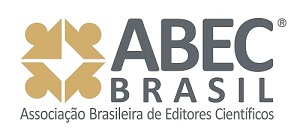PERCEPÇÕES DE ALUNOS DE ESTÁGIO DE LETRAS-INGLÊS SOBRE O USO DO MÉTODO FÔNICO SINTÉTICO
Palavras-chave:
Método fônico, Ensino, Inglês como língua estrangeiraResumo
Este estudo teve por objetivo investigar as perspectivas que alunos de LetrasInglês da Universidade Federal do Ceará (UFC) têm sobre a possível aplicação do método fônico sintético em suas aulas. Os participantes eram todos alunos de semestres finais com ou sem experiência como professor. Para a coleta de dados, foi gravado um vídeo explanatório sobre o método fônico sintético e como ele poderia ser utilizado em aulas de inglês como língua estrangeira (inglês-LE), e apresentado aos oito participantes. Após assistirem ao vídeo, no qual o método fônico era apresentado e demonstrado, os alunos responderam a um questionário sobre aspectos relevantes do método e do seu uso em aulas de inglês-LE. Os resultados indicam que os alunos acreditam na eficácia das técnicas apresentadas como uma maneira apropriada de se ensinar de maneira formal e explícita as correspondências grafofônicas do inglês em um contexto de inglês-LE. Ademais, os participantes parecem defender a implementação do método fônico sintético de maneira permanente no ensino de inglês-LE, principalmente nos estágios iniciais.
Downloads
Referências
Cambridge Dictionary. Disponível em: <http://dictionary.cambridge.org/pt/dicionario/ingles/ic fallbackFrom=britishgrammar>. Acesso em: 30 de July de 2017.
CLECKER, Bob C. Let"™s End Our Literacy Crisis. Revised edition. Salt Lake City: American University and College Press, 2008.
CARSTAIRS-MCCARTHY, A. An Introduction to English Morphology: words and their structures. Edinburgh: Edinburgh University Press, 2002.
CRYSTAL, David. The Cambridge Encyclopedia of the English Language. Cambridge: Cambridge Press, 1994.
DAVENPORT, David; JONES, Jeffery M. The Politics of Literacy. Politics Review. April/May, 2005, p. 45-57.
DÖRNYEI, Zoltán. Research Methods in Applied Linguistics. New York: Oxford University Press, 2007.
EHRI, Linnea C. at al. Systematic Phonics Instruction Helps Students Learn to Read: Evidence from the National Reading Panel"™s Meta-Analysis. Review of Education Research. v. 71, n.3, 2001, p. 393 -447.
EIDE, Denise. Uncovering the logic of English: A Common-Sense Approach to Reading, Spelling, and Literacy. Minneapolis: Pedia Learning, 2012.
FLESCH, R. Why Johnny can"™t read and what you can do about it. New York: Harper Collins Publishes, 1986.
HARDY, A. An investigation to establish the impact of synthetic phonics on teaching children with English as an additional language to read. Dissertation –Canterbury Christ Church University –Canterbury. 2014. Disponível em: <https://goo.gl/h24Liv> Acesso em: 14 jul. 2017.
JONES, Monica L. Phonics in ESL Literacy Instruction: Functional or Not? (Paper presented at the World Conference on Literacy (Philadelphia, PA, March 1996). 1996. 31p. Disponível em: <http://www.literacyonline.org>. Acesso em: 16 de novembro 2017.
KIM, JS. Research and the reading wars. In: Hess FM. When Research Matters: How Scholarship Influences Education Policy. Cambridge, MA: Harvard Education Press, 2008. p. 89-111.
MADDOX, Krissy; FENG, Jay. Whole Language Instruction vs. Phonics Instruction: Effects on Reading Fluency and Spelling Accuracy of First Grade Students. (Presentation at Georgia Educational Research Association Annual Conference, October 18, 2013. Savannah, Georgia) Disponível em: < https://files.eric.ed.gov/fulltext/ED545621.pdf> Acesso em: 17 de novembro 2017.
MARTÍNEZ, A. M. M. Explicit and Differentiated Phonics Instruction as a Tool to Improve Literacy skills for Children Learning English as a Foreign Language. Gist Education and Learning Research Journal, [s. l], v.5, 2011, p. 25-49.
NATIONAL READING PANEL (U.S). Report of the National Reading Panel: Teaching children to read: an evidence-based assessment of the scientific research literature on reading and its implication for reading instruction. Washington, D.C: U.S.: Government Printing Office, 2000.
PUREWAL, S. Synthetic Phonics and the Literacy Development of Second Language Young learners. 70 p. Thesis. (Master's Thesis at TESOL)- School of Education, University of Leeds, 2008. Available at: <https://goo.gl/Jj2CQz>. Accessed on: July 27, 2017.
ROSE, J. Independent review of the Primary Curriculum: Final Report. Nottingham: DSCF publications, 2009.
______. Independent review of the teaching of early reading. DfES, 2006.
ROWE, Ken. Teaching Reading: report and recommendations. [s.l.: s.n.], AUSTRALIA. Department of Education, Science and Training, 2005. Available at: <http://research.acer.edu.au/tll_misc/5/>. Accessed on: July 27, 2017.
SNOW, Catherine E; BURNS, M. Susan; GRIFFIN, Peg. Preventing Reading Difficulties in Young Children. Washington, DC: National Academy of Sciences, National Research Council, 1998.
STAHL, Steven A.; OSBORN, Jean; LEHR, Fran. Thinking and learning about print by Marilin Jager Adams, a summary. Urbana: Center for the study of reading, 1990.
TORGERSON, J. C.; BROOKS, G; HALL, J. A Systematic Review of the Research Literature on the use of Phonics in the Teaching of Reading and Spelling. Department of Education and Skills, 2006.
U.S Department of Education. Disponível em: https://www.ed.gov/ Acesso em: 27 de novembro de 2017.
WYSE, D.; GOSWAMI, U. Synthetic Phonics and the teaching of reading. British Educational Research Journal. 2008. pp. 691-710. Disponível em <http://onlinelibrary.wiley.com/doi/10.1111/berj.2008.34.issue-6/issuetoc>. Acesso em: July 27, 2017.
Downloads
Publicado
Como Citar
Edição
Seção
Licença
Copyright (c) 2018 Ronaldo Pereira de Oliveira, Ronaldo Mangueira Lima Júnior

Este trabalho está licenciado sob uma licença Creative Commons Attribution-NonCommercial-ShareAlike 4.0 International License.






